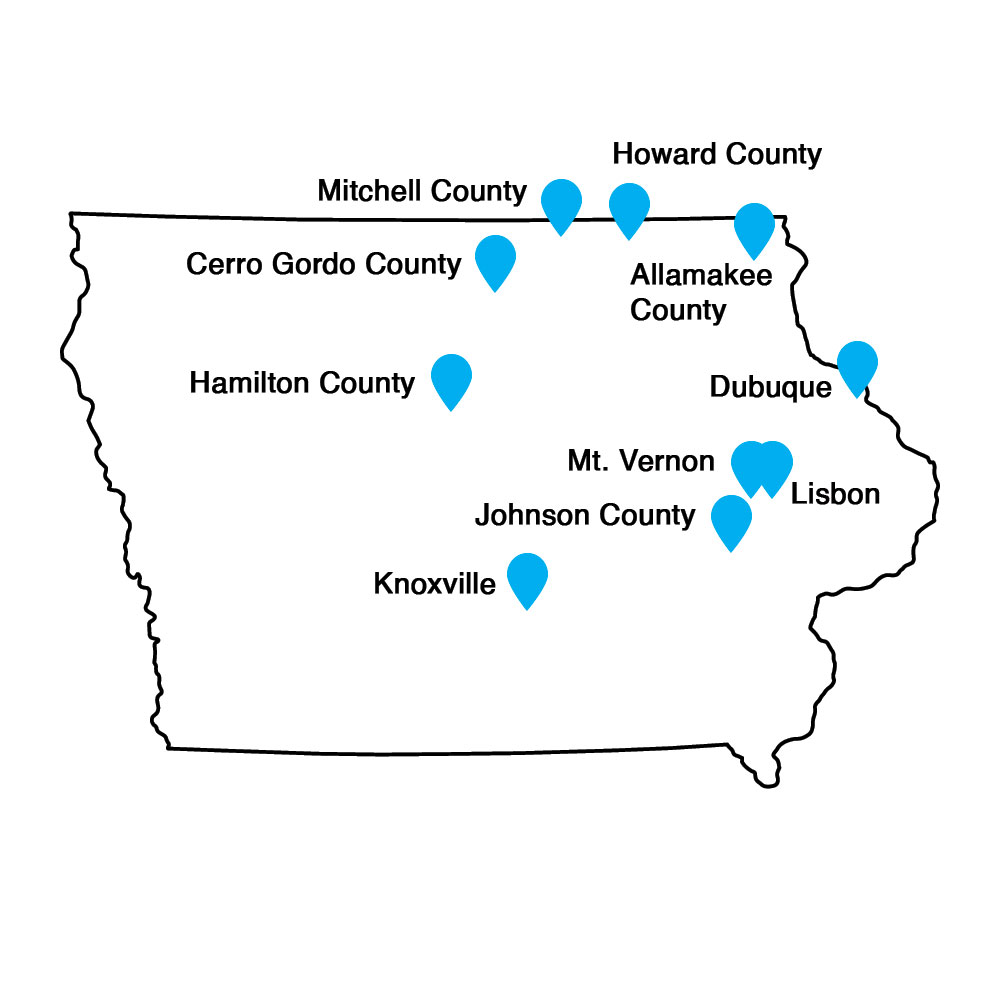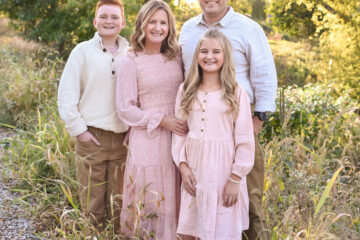The Iowa Women’s Foundation is dedicated to combating six major barriers to women’s financial self-sufficiency — transportation, housing, child care, education and training, employment, and mentoring.
A statewide tour in 2016 revealed child care to be the barrier most pressing to Iowa families.

“If you don’t have child care, you can’t do any of the other things,” said Deann Cook, president and CEO of the foundation.
IWF is pressing forward with its goals to support community-built solutions to address the child care crisis. The organization believes that creating tailored infrastructures to get families safe, affordable child care is key to making the workforce accessible for all.
In its November 2024 report in partnership with Common Sense Institute, the foundation estimated that 150,000 additional mothers could enter the workforce if every mother with children had access to child care.
“Parents won’t leave their kids to work if there isn’t a safe, affordable place to take them. They would choose to be in the workforce if they had an option, but they don’t, because it’s either going to eat up more than their salary or they can’t find a place to go. Parents in Iowa right now pay double what’s considered affordable for child care,” Cook said.
Connecting communities to child care
IWF recently began its search for a new strategic initiatives director, tasked with convening “communities, businesses and policymakers to eliminate barriers to women’s economic self-sufficiency” with a current focus on child care. The position evolved from the previous employer engagement director, an Iowa Economic Development Authority-funded position that grew from the listening tour.
“The grant-funded position from IEDA did that community work of facilitating, bringing in the research and education so community stakeholders knew what the issues were, and then starting to replicate various solutions that worked for them,” Cook said.
Those solutions included partnerships with school districts, intergenerational care in nursing facilities and companies buying day care slots for their employees. Employers, community leaders and families across the state agreed that this was an issue that needed addressing, and they were willing to get creative to do it.
The strategic initiatives director will help to facilitate those conversations and provide research to pinpoint what might work best. The community involvement was critical in finding long-term solutions.
“We’ve spent about five years coming up with all kinds of things that different communities are implementing,” Cook said. “We recognize what works in Adel doesn’t work in Perry, which doesn’t work in Gladbrook, which doesn’t work in Osage. Our goal is to be there to support them as they consider the options and operationalize something.”
Funding solutions
IWF has found that one option that seems to work for a variety of communities is pooled community funds to support child care workers.
Any business or individual that wants to buy in can support these community-held funds. Local child care providers can then use the funds to raise their wages, provide bonuses and incentivize child care workers to stay in the industry.
“The nurturing of a healthy child care workforce, where there’s lots of spaces and lots of spots and the people doing the work are paid well enough, is an engine for the community. That, in turn, makes parents more comfortable to be employed, and it keeps the economy of that area going,” Cook said.

IWF partnered with the state to expand these funds in 10 communities across the state — Allamakee County, Cerro Gordo County, the city of Dubuque, Hamilton County, Howard County, Johnson County, the city of Knoxville, the city of Lisbon, the city of Mount Vernon and Mitchell County.
The program, Iowa’s Childcare Solutions Fund, made a noticeable impact. According to its November 2024 report, the fund raised $2.4 million from 373 investors and created 275 child care slots. The fund engaged 105 child care providers and affected more than 1,200 child care employees.

Postville Childcare Services had been working with the Iowa Women’s Foundation prior to the pilot program to find solutions to keep their center open. After being asked to join, Director Kristy Turner worked with Allamakee County Economic Development Director Val Reinke and Michelle Barness, a regional planner with the Upper Explorerland Regional Planning Commission, to raise funds from the community.
They were able to raise $163,000, from both businesses and private contributors, which the state matched.
“It meant we could stay open and provide care for, on average, 60 children,” Turner said. “We were able to maintain that as well as grow, so we brought nine children off of our waiting list. We also went from 16 mostly part-time staff to 22 mostly full-time staff. We were able to raise wages for our teachers, and we also saved money for our families because we had the option of the Child Care Solutions Fund, so we didn’t have to raise rates.”
Gov. Kim Reynolds proposed a statewide Childcare Solutions Fund in her Condition of the State remarks in January, and IWF is working with other communities to establish their own funds. Cook says more and more people are seeing how these funds benefit the entire community and the next step is to operationalize them for even more communities.
Turner said they’ve heard from community groups recently that they’d like to know how the state is going to match funds before contributing. More people will be willing to participate once they know the program is sustainable.
“I think, universally, everyone that’s involved says these work and they need to continue,” Cook said. “It’s just finding the exact vehicle for them to continue.”
Community-focused
While the child care funds are having great success, IWF remains committed to supporting communities in addressing this issue in whatever works best for them. The goal is to uncover what the community needs and tailor a solution to fit that need.
“Strengthening child care is like strengthening any other kind of infrastructure in your community,” Cook said.
Some businesses will purchase child care slots at partner day care providers for their employees. Others establish their own child care program within their businesses. School districts are partnering with child care centers to transport children to preschool and back.
A community in northwest Iowa had an unused building on a senior living facility campus that was transformed into a child care facility.
No matter the road they choose, Cook said they have seen more and more businesses and leaders commit to solving this problem for the betterment of their community.
“There’s a research base that says this works. Now how can we replicate it throughout the state?” Cook said. “Because ultimately, it makes our state stronger. It puts women in a better position. It puts people in a better position who are child care workers who want to do that work, and love to do that work. That’s who we want with our kids. Our ultimate goal is always strengthening women’s opportunities and options.”

